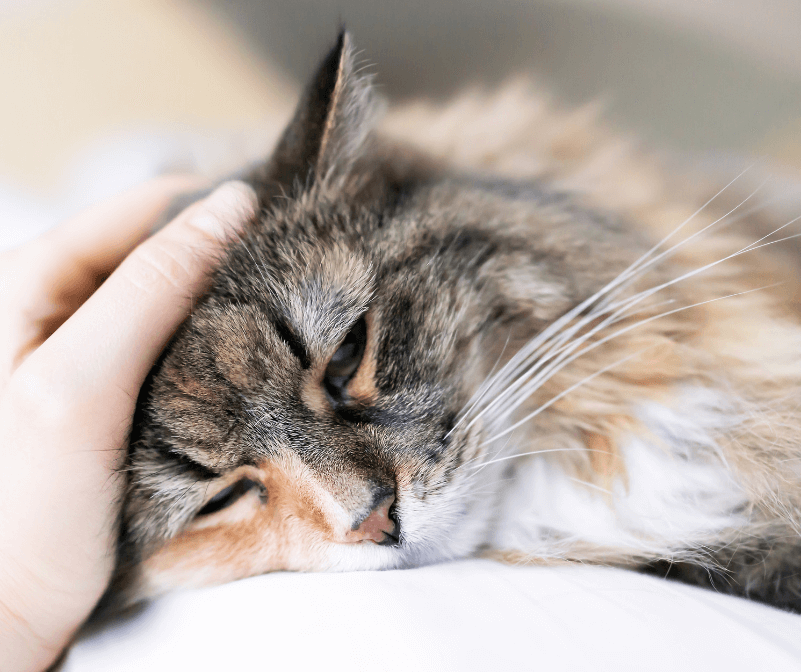Be Prepared for a Cat Emergency

An emergency involving your precious feline can occur at any time. It’s awful to imagine things that could go wrong, but it pays to be prepared for a cat emergency. Knowing what to do will increase your chances of dealing with the unexpected in the best and most efficient way for a positive outcome. Keep this list of cat emergencies handy for the sake of your cat.
Remain Calm
Benjamin Disraeli famously said, ‘Prepare for the worst but hope for the best’. Let’s take this quote a step further: when we prepare for the worst, we increase our success in a crisis. It’s not quite as catchy, but in an emergency, it is difficult to think straight. If you are prepared, you have done the thinking ahead of time. The adrenalin that courses through your veins can be put straight to work. Consider what your course of action will be in an emergency involving your cat, and know the following.
- How to confidently put your cat in a carrier.
- Your veterinarian’s emergency contact number.
- Your local veterinary hospital number.
This list contains emergencies you may face as a cat guardian. Call your veterinarian immediately if any of these occur.
1. Breathing Difficulties
Difficult, laboured breathing or ‘dyspnoea’ and rapid breathing or ‘tachypnoea’ can affect cats of any breed or age, and the problem can quickly become life threatening if not treated immediately. Common signs of breathing difficulties include any changes in breathing patterns or persistent breathlessness and open-mouthed panting lasting longer than a minute.
2. Urinary Tract Blockage
Difficulties urinating may indicate cystitis or bladder stones. These small stones can block the flow of urine and prevent the bladder from emptying. This can become very painful and is life threatening.
3. Fever
A fever is often in response to infection. Affected cats may seem lethargic or sleepy and reluctant to drink or eat. Cats with a fever may not feel hot to the touch.
4. Signs of Severe Pain or Distress
Because cats are good at hiding symptoms of pain, call your veterinarian immediately if you do notice obvious pain or distress. Symptoms of pain and distress include overreacting and sensitivity to touch, panting, hiding and vocalising.
5. Paralysis to the Hind End
Aortic thromboembolism is a complication of heart disease where blood clots lodge in the rear legs, causing sudden paralysis.
6. Known Ingestion of Toxins
Cats are vulnerable to poisoning from ordinary household items, as well as obvious toxins. Toxic substances include lilies, onions, chocolate and dog flea control. Rapid action can dramatically improve the outcome of cat poisoning. Read 10 Common Household Hazards for Cats for information on household cat toxins.
7. Bleeding
All wounds that are actively bleeding, that are deep or large are an emergency. Injuries to the chest cavity, abdominal cavity or head can be critical. Dismiss the impulse to remove impaled objects; such objects may actually be preventing major blood loss by blocking damage to veins, or removal may cause further tissue damage. Bite wounds may seem less urgent, but should be monitored closely. Bites from cat fights commonly result in infection and fever, due to bacteria. Such a bite can develop into an abscess. Treatment before a bite wound can prevent the need for surgery.
8. Vomiting and Diarrhoea
Repeated vomiting is not normal. If your cat can’t keep water down or if there is blood or unusual material in their vomit, consider it an emergency.
Repeated or prolonged diarrhoea should also be considered urgent. Monitor your cat for other symptoms, and look around for toxin sources – and call your veterinarian for an urgent appointment.
Prepare for the worst and increase your success in a crisis. Keep this list handy, know your veterinarian’s emergency contact number and your local veterinary hospital number. Remember you will need to call ahead, and make sure you know how to confidently put your cat into their carrier. Now you can hope for the best, safe in the knowledge that you’re prepared if worse does come to worst.
In the case of ingestion of toxins, you can also call the Australian Animal Poisons Hotline on 1300 869 738.
